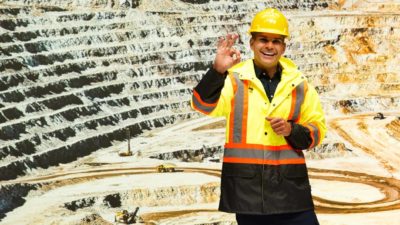Warren Buffett is one of the world's leading investors and has helped his company Berkshire Hathaway, grow into a major global conglomerate. However, Buffett's company chooses not to pay dividends. Some ASX shares might be wise to consider the same strategy.
I don't think paying dividends is a bad thing. It rewards investors with a share of the profit that the company has made.
Based in the United States, Berkshire Hathaway is invested in a variety of listed companies. It also operates its own businesses, such as GEICO and See's Candies.
Buffett has achieved excellent returns with Berkshire Hathaway. In February 2023, in his letter to shareholders, he showed that Berkshire Hathaway's per-share market value achieved an average return per annum of 19.8% between 1965 to 2022. Whereas, the S&P 500 Index (INDEXSP: .INX) only returned 9.9% per annum over the same time period (which is still very good).
Even though it's made huge returns, Buffett's Berkshire Hathaway doesn't pay dividends.
Better in the hands of Buffett
The investing legend has previously commented that companies should do what's best for shareholders with the cash.
Berkshire Hathaway has three main options with its generated profit – re-invest it in the business, pay a dividend or carry out a share buyback.
Buffett will only utilise a share buyback if he thinks that Berkshire Hathaway stocks are attractively priced. And there isn't anything better to do with the cash. Share buybacks are useful for increasing the ownership of the business for existing shareholders and improving the per-share statistics such as earnings per share (EPS).
By keeping the profit within the businesses, existing shareholders seemingly get an immediate valuation boost. A $1 billion dividend is worth $1 billion in shareholder bank accounts. Berkshire Hathaway's price-to-book ratio is 1.47x, according to Commsec, so keeping $1 billion in the bank could boost the market capitalisation by $1.47 billion, in theory, which is better for shareholders.
Berkshire Hathaway has done excellently with the retained cash over the decades. In recent times, it has made investments in growing businesses such as Apple and Occidental Petroleum Corp. Buffett has compounded shareholder money strongly by utilising retained cash, and shareholders have been better off than receiving a dividend.
Should ASX shares do the same thing?
Australian tax-paying companies can unlock some value for shareholders by paying out the franking credits that build up as they make a taxable profit and pay income tax. If they never paid a dividend, those franking credits would just build up. That's already a good reason for Aussie companies to pay dividends compared to Warren Buffett's Berkshire Hathaway.
The next thing to think about is that some businesses make big returns on the retained cash that could be paid to shareholders, whereas others don't. A great financial metric to measure this is the return on equity (ROE). The bigger the ROE, the better it is for the company to retain the cash. This assumes it can make a good return on that newly invested cash.
For example, in the most recent half-year results, Wesfarmers Ltd (ASX: WES) realised a ROE of 32.8%. Meanwhile, Westpac Banking Corp (ASX: WBC) saw a ROE of 11.3%. It would make much more sense for Wesfarmers to hang onto its cash than Westpac.
I'm not going to look at every single business, but I'd say a business with a ROE of 20% or more could significantly benefit shareholders in the long-term by lowering the dividend payout ratio. But, those management teams shouldn't use retained cash on risky 'empire-building' acquisitions, which can burn through capital.
I believe there are a number of ASX shares that could deliver stronger returns for shareholders by hanging onto more cash to re-invest, like Warren Buffett's Berkshire Hathaway.









